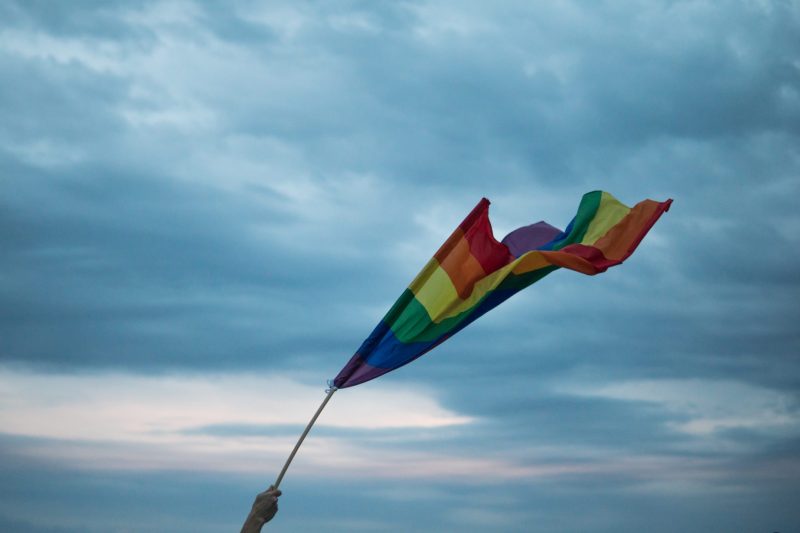Today, we take time to honor our LGBTQ Elders.
We owe a lot to members of the LGBTQ (lesbian, gay, bisexual, transgender, and queer/questioning) community. Faced with discrimination in workplaces and too often with rejection from families, their voices grew stronger and louder, as over decades they fought for acceptance. Their foundation of their hard work, bravery, and activism led to same-sex marriage becoming legalized in June of 2015, as well as many other advances. Today, it is essential that we recognize and pay tribute to their sacrifices and successes.
This day celebrates all LGBTQ elders: those who are vocal about being out, as well as those who more quietly lived their lives. As LGBTQ people age, they still face some unique challenges. There is no better time than today to listen to their stories and learn from their experiences.
Successful Aging Can Be Challenging
As we all grow older, we start to rely more on friends, family members, or partners. We might ask for a ride to the doctor’s office or assistance shopping for groceries. For some, a caregiver is needed for more complex tasks, like meal prep or taking care of the house or lawn. For a variety of reasons related to legal and social sanctions, older LGBTQ adults didn’t have the same opportunities as their heterosexual peers to marry or have children. Many were estranged from their families of origin, who rejected them because of their sexual orientation.
As a result, LGBTQ older adults are twice as likely to age alone and four times less likely to have children as their heterosexual counterparts. This can mean they are living in isolation and can have challenges in finding welcoming support systems for safe and secure aging.
Where can LGBTQ members turn to when they need extra help as they age?
LGBTQ members frequently turn to their “families of choice.” Instead of relying on biological family members, close friends might take over the role of caregiver. In fact, 21% of older LGBTQ adults have provided care to friends, whereas only 6% of heterosexual adults have done the same for their friends. Challenges exist when friends are of a similar age, and might not be able to help them in the long-term. This continues to lead to high rates of isolation in LGBTQ elders. Caregivers for LGBTQ members might also face a unique challenge in the legal and healthcare system, which favors biological family members and might deny access to non-family members. This can be resolved with appropriate estate planning documents and planning ahead.
A health disparity reality
Because of isolation, health disparities, and financial insecurity, LGBTQ older adults who are in need of healthcare help are less likely to reach out and ask for it. A 2010 study found that LGBTQ elders who did have access to services and benefits weren’t using them, and only took advantage at a 20% rate that their heterosexual counterparts do. 9% of LGBTQ people reported that a doctor or other healthcare member used harsh or abusive language when treating them. Whether it was in the past or a more current incident, this has led many LGBT older adults to avoid going to the doctor to avoid any issues. Not surprisingly, some older LGBTQ adults mistrust medical and social service providers.
Caregivers are vitally important to successful aging
Whatever role you play in someone else’s life, being there for each other is a vital and beautiful thing. Here are a few things you can do to help support the LGBTQ elders in your life.
- Initiate the conversation. By starting the discussion early about preferences, health care wishes, or details about finances, it can help make big decisions much easier. Planning ahead helps to ensure the cared for individuals choices are followed when the time comes to make hard decisions.
- Make a plan. Having a caregiver plan in place before needing one helps the caregiver of choice respond quickly in an emergency. It helps to keep people on the same page and ensures you have all medical and legal documentation in order.
- Have a support system. As a caregiver, you can’t do this alone. You can take care of your LGBTQ elder better by finding others who can support you both. Reaching out to friends, colleagues, family members, or even religious organizations can help you when needed most. There are also many groups or professionals that can help provide expertise or resources to help you in your caregiving journey. Smithlife Homecare is available to assist with respectful and thoughtful caregiving.
- Take care of yourself. Many LGBTQ caregivers are more likely to be in isolation, and that leads to poor mental and physical health. Don’t forget about your own health while you take care of others. While it is not an easy job, it is an important one, and understanding all that goes with it will help you as you help others.
Our partnership with SAGE
This is why our partnership with SAGE is so incredibly important. SAGE gives a voice to those who are often ignored and advocates for their continued rights. Together with SAGE we can help look after the members of the LGBTQ community that need that extra helping hand. Our LGBTQ elders have had a tremendous impact on all of our lives today, and that work should never be forgotten.
